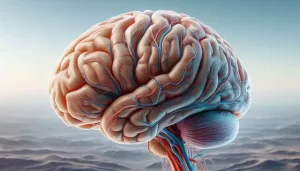Science Translational Medicine: Deep sleep has the effect of curing diseases
- A Persistent Crisis: The Looming Specter of Drug Shortages in United States
- Rabies: The fatality rate nearly 100% once symptoms appear
- Human Brain Continues to Grow: Study Shows Increase in Size and Complexity
- CRISPR Genome Editing: From Molecular Principles to Therapeutic Applications
- Metformin Helps Immune System Better Recognize Cancer Cells
- Highlights of Prostate Cancer Research at the 2024 EAU Congress
Science Translational Medicine: Deep sleep has the effect of curing diseases
- Red Yeast Rice Scare Grips Japan: Over 114 Hospitalized and 5 Deaths
- Long COVID Brain Fog: Blood-Brain Barrier Damage and Persistent Inflammation
- FDA has mandated a top-level black box warning for all marketed CAR-T therapies
- Can people with high blood pressure eat peanuts?
- What is the difference between dopamine and dobutamine?
- How long can the patient live after heart stent surgery?
Science Translational Medicine: Deep sleep has the effect of curing diseases
Sleep is known to be critical for a healthy brain, improving focus and mood when awake. During the four phases of the sleep cycle, the body restarts and refuels to boost immunity, release hormones that repair cells and control metabolic rate.
Cleaning up waste is also a core function that sleep has retained during evolution.
Because deep sleep removes waste products from the brain, including toxic proteins that can lead to neurodegenerative diseases.
Therefore, sleep may also be one of the most effective “drugs” for treating brain disorders.
Recently, researchers from the University of Zurich in Switzerland published a research paper entitled: Slow-wave sleep affects synucleinopathy and regulates proteostatic processes in mouse models of Parkinson’s disease in Science Translational Medicine .
The study explores clues to sleep pattern disturbances and the development of Parkinson’s disease, suggesting that deep sleep holds promise as an effective treatment for brain disorders.

Sleep disturbances have been shown to contribute to several neurodegenerative diseases, including Parkinson’s disease.
Previous studies have found that changes in slow-wave sleep are associated with the symptoms and progression of Parkinson’s disease.
Slow- wave sleep (SWS) refers to the stage of non-rapid eye movement sleep, or NREM sleep, which is characterized by high-amplitude, low-frequency brain waves. During NREM (also known as stage 3 sleep) , delta waves dominate when a patient undergoes an electroencephalogram (EEG) .
Slow-wave sleep is the deepest, calmest stage of sleep and is thought to be the period when memory consolidation occurs.
The researchers hypothesized that restoring healthy deep sleep might limit the buildup of toxic proteins in the brain, thereby slowing the progression of Parkinson’s disease.
Slowing the destructive condition by increasing the amount of time spent in non-REM sleep seems like an easy fix.
Parkinson’s disease is a common neurological disorder that affects patients’ movement and gait.
The clinical symptoms are tremor, muscle stiffness, and slow movement, along with non-motor symptoms such as depression, constipation, and sleep disturbance. Incidence increases with age.
According to the Parkinson’s Foundation, more than 10 million people worldwide are currently living with the disease.
Alpha-synuclein is a soluble protein expressed presynaptic and perinuclear in the central nervous system, which is closely related to the pathogenesis and related dysfunction of Parkinson’s disease.
When alpha-synuclein is overexpressed, the neurotransmitter is actively inhibited. But in Parkinson’s disease, the protein builds up in the brain.
These massive alpha-synuclein deposits are called Lewy bodies and are a marker not only for Parkinson’s disease, but dementia with Lewy bodies (DLB) .
In the advanced stages of Parkinson’s disease, dementia may develop.
The researchers believe that sleep deprivation, a major problem in Parkinson’s disease , increases alpha-synuclein deposition.
Therefore, increasing slow-wave sleep duration may have beneficial effects on the brains of people with Parkinson’s disease.
To test their hypothesis, the researchers investigated the effect of sleep deprivation on the accumulation of neurotoxin aggregates.
They also investigated a way to increase slow-wave sleep in animal models.
The researchers found that sleep deprivation increases the accumulation of alpha-synuclein in the brain.
Enhancement of slow-wave sleep with sodium oxybate reduces alpha-synuclein burden.
They suggest that this may be achieved by increasing glymphoid system function and regulating protein homeostasis.
Glymphatic is a compound word of glia and lymphatic in English. During slow-wave sleep, the lymphoid system pumps cerebrospinal fluid to the peripheral ducts of the brain (inner ducts carry blood) in time with the pulse of the arteries , the cerebrospinal fluid flows rapidly through the brain tissue, and the soluble waste proteins are cleaned out, which may explain why prolonged Deep sleep may slow the progression of Parkinson’s disease.
Thus, our findings suggest that sleep plays an important role in the pathophysiology of Parkinson’s disease and that manipulating slow-wave sleep may have therapeutic effects in Parkinson’s disease patients.
The new study adds new clues to research investigating the impact of irregular sleep patterns on neurodegenerative diseases.
Previous research has raised an intriguing scientific question: Is disruptive sleep a cause or a consequence of Alzheimer’s disease? The study underscores an important point: The affected brain structures in people with sleep disorders coincide with vulnerable areas in Alzheimer’s disease.
After a quick calculation, many readers will complain: “I also want to sleep deeply, but I really have difficulty sleeping.” please watch the following part.
Patrick Fuller , a sleep scientist and assistant professor of neurology at Harvard Medical School, shares some tips for getting a good night’s sleep. While this method may not fit everyone’s schedule, Patrick Fuller says the schedule really makes him feel happy and energized every day.
Here are eight sleep “secrets” from Patrick Fuller :
1. Wake up at the same time every morning
A lot of people’s sleep problem is that their bedtime schedule is not a schedule at all, it’s “whatever you want”.
If you wake up at 11am on a Sunday morning, you’ll be driving yourself to sleep on Sunday night because of a lack of sleepiness and then sadly be up for work at 7am on Monday.
“As people get up later and later, their drive to sleep gets weaker and they get the illusion that they have insomnia,” Fuller said. “It’s just too much sleep during the day.”
Waking up at the same time every morning is the most important thing for quality sleep.
2. Avoid irritating meals in the afternoon
After a busy morning, it’s easy to want to refresh yourself with a cup of coffee during afternoon tea. But we should stay away from coffee machines at this time anyway.
Caffeine has a long half-life and takes more than 6 hours to clear from the body, so don’t drink soda, coffee, or tea in the afternoon. Fuller doesn’t drink coffee at all, instead drinking green tea in the morning, a cup of green tea has half as much caffeine as a cup of coffee. “I love the taste of coffee, but there’s so much caffeine in it,” Fuller said. “I just drink some tea in the morning and definitely don’t drink it after the afternoon.”
3. Get at least 20 to 30 minutes of physical activity every day
Exercise is a miraculous “tonic” that protects against many diseases, including stress, heart disease, stroke, diabetes, cancer, dementia, and more. Exercise is also good for sleep. Studies have shown that exercising in the morning or afternoon can improve sleep quality at night.
But don’t do strenuous exercise right before bed, as this will raise your body temperature and activate your muscles, making it harder to fall asleep for a short period of time.
Fuller said he does some form of exercise every day, even if it’s simply climbing stairs or walking slowly for 20 to 30 minutes. “Maintaining proper physical activity is very important,” Fuller said.
4. Don’t drink at night
Many people think that alcohol is a good way to help you fall asleep. Let’s not talk about its harm to the body, alcohol does relax muscles and make it easier to fall asleep. But be careful, the hypnotic effects of alcohol don’t last all night.
“People always try to use alcohol to help them fall asleep, and it does work,” Fuller said. “The problem is, once the alcohol wears off, you wake up in the middle of the night and start staring at the ceiling and counting sheep until dawn.”
In fact, according to the National Institutes of Health (NIH), drinking alcohol before bed reduces the amount of time spent in rapid eye movement (REM) sleep, a deep, restorative sleep stage. “It’s a very bad idea to use alcohol to fall asleep,” Fuller said.
5. Create a sleeping atmosphere
Fuller wakes up at about 5:30 every morning, and his goal is to close his eyes and fall asleep by 9:30 every night. If there are still bowls to wash, TV shows to watch, news to read, and work to go on, then the task is almost impossible.
To set his body’s internal biological clock to prepare for sleep, Fuller dims the lights an hour before bed each night to create a sleep-like atmosphere. Dim lighting can help the body produce melatonin, a hormone that aids sleep.
6. Don’t look at the screen an hour before bed
Dim lighting can help the body produce melatonin to promote sleep, while smartphone and tablet screens can do the exact opposite.
Because they make the brain think it’s still daytime, and lower melatonin levels. Over time, disrupted sleep time from phones and tablets can damage memory and increase the risk of depression, obesity and even various cancers.
7. Go to bed at the same time every day
By now, you probably already know that the secret to a good night’s sleep is to set a schedule that you can stick to. To be awake when the alarm goes off (the same time every day) , you must go to sleep at the same time every night. Sleeping too much or too little can mess up your sleep habits.
8. Most importantly, be persistent but not persistent
While Fuller sticks to his sleep schedule every day, he’s also realistic and tweaks it every now and then. “I’m not going to make myself neurotic because of my sleep time, in fact I’m not going to make myself neurotic about anything,” Fuller said.
But when he sticks to this sleeping habit, he thinks it’s worth it. “As boring as it sounds, I find it feels good to do it,” Fuller said. “When I wake up, I feel light and energized. If my schedule is messed up one day, I’m on the next day.” I wake up feeling bad. I’m already very motivated to stick to my routine.”
Reference:
https://www.science.org/doi/10.1126/scitranslmed.abe7099
Science Translational Medicine: Deep sleep has the effect of curing diseases
(source:internet, reference only)
Disclaimer of medicaltrend.org
Important Note: The information provided is for informational purposes only and should not be considered as medical advice.



